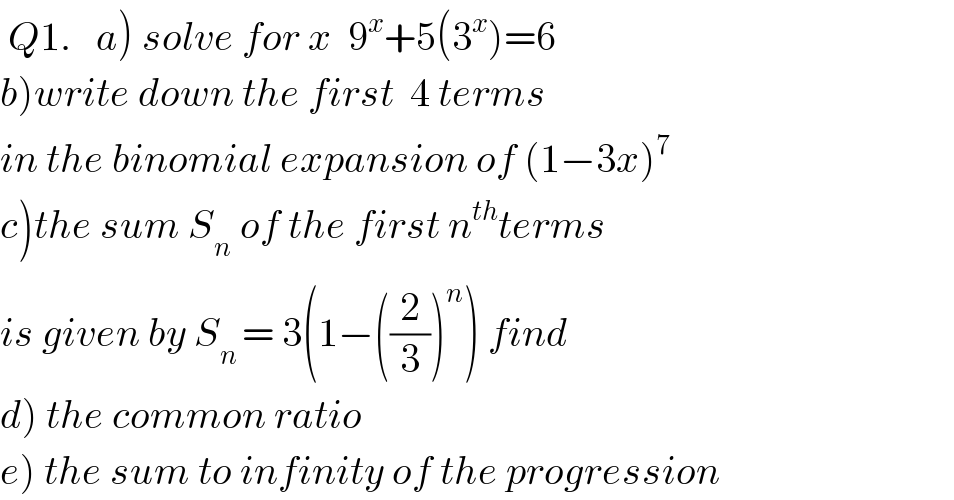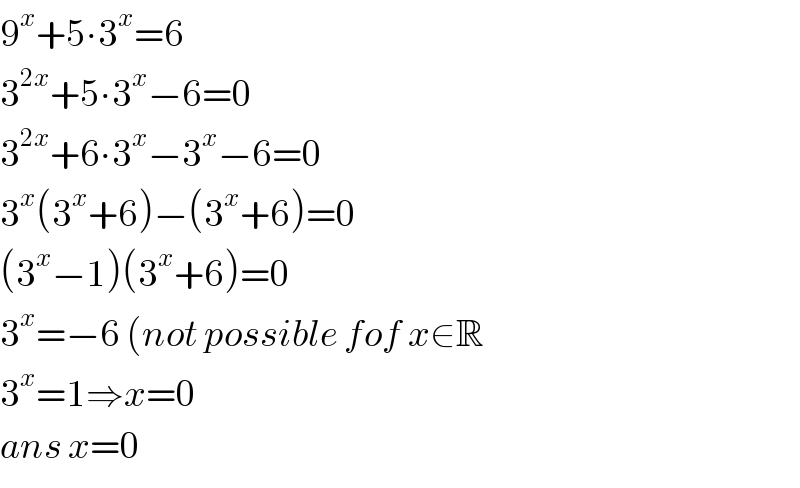
Question and Answers Forum
Question Number 35304 by Rio Mike last updated on 17/May/18

Commented by prakash jain last updated on 17/May/18

Commented by Rasheed.Sindhi last updated on 18/May/18

Commented by rahul 19 last updated on 18/May/18
No problem sir ��
Commented by prakash jain last updated on 18/May/18

Answered by MJS last updated on 18/May/18

Answered by Rasheed.Sindhi last updated on 27/May/18
![(c) S_n = 3(1−((2/3))^n ) First term=a=3(1−((2/3))^1 )=1 ⋇Common ratio r 1+r=(S_2 /S_1 )=((3(1−((2/3))^2 ))/(3(1−((2/3))^1 ))) [(S_2 /S_1 )=((a+ar)/a)=1+r] =(((1−(2/3))(1+(2/3)))/((1−(2/3))))=(5/3) r=(5/3)−1=(2/3) ⋇ Sum of infinite terms=(a/(1−r))=(1/(1−(2/3))) =(1/(1/3))=3](Q35346.png)
Commented by Rasheed.Sindhi last updated on 27/May/18

